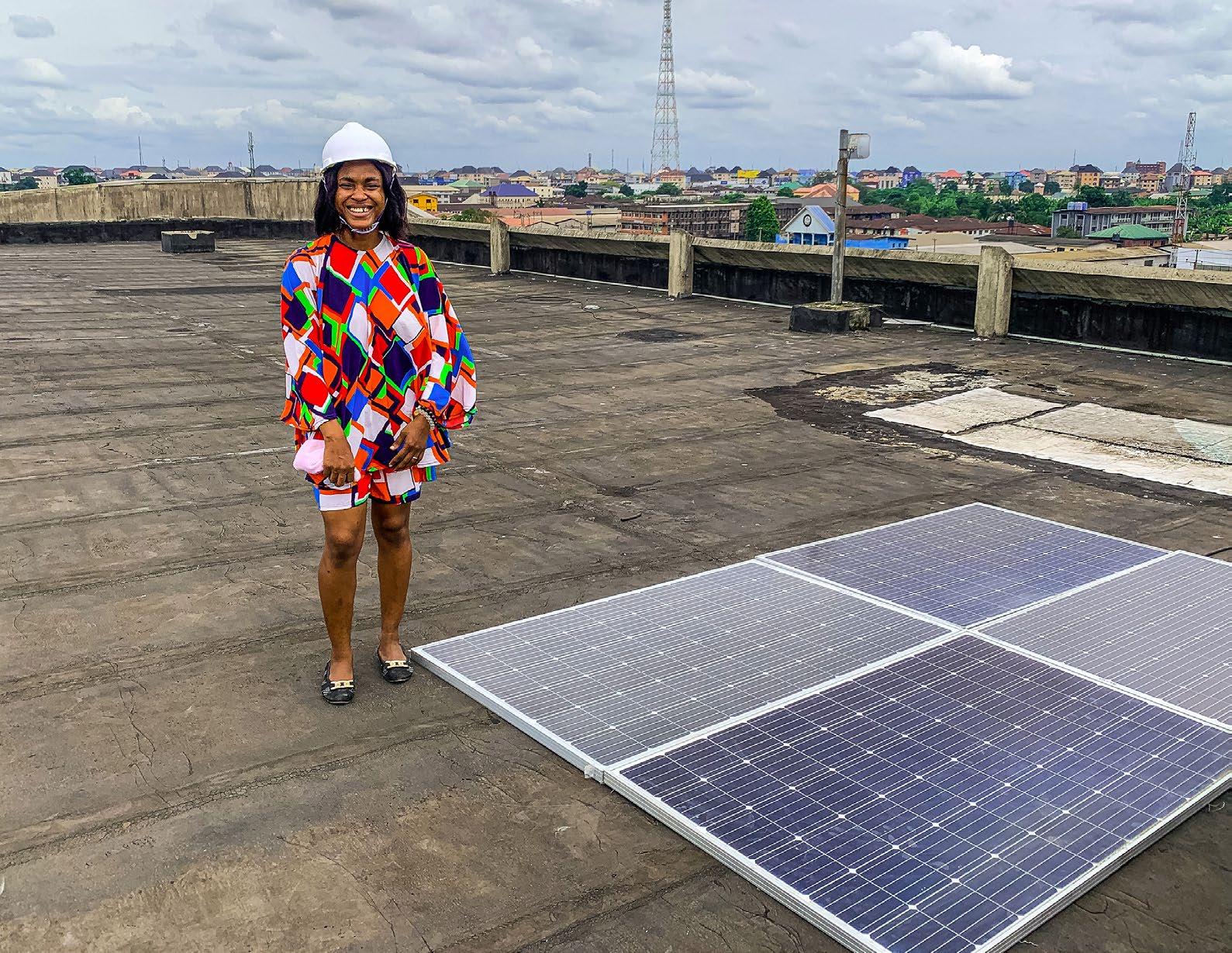
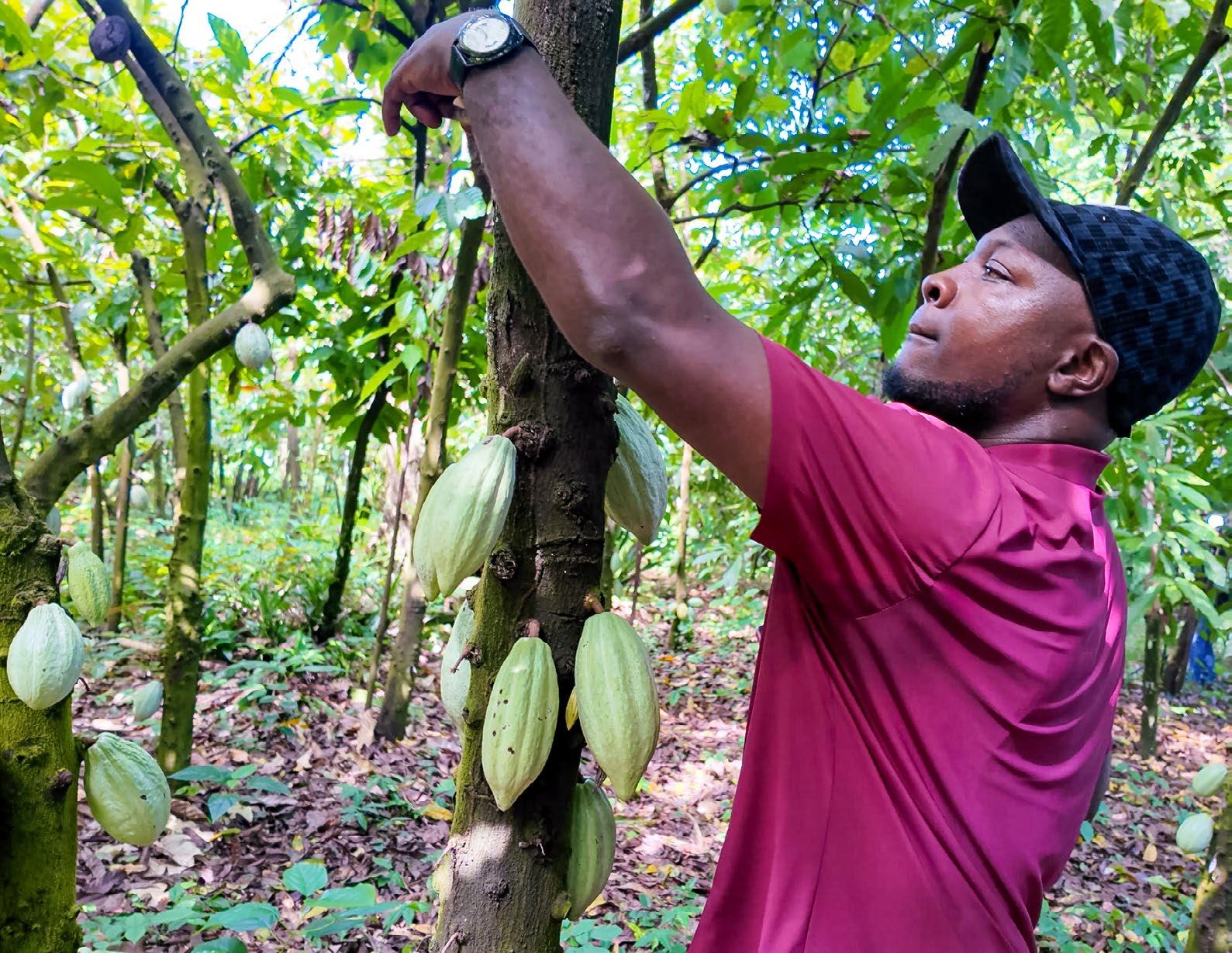
NDPI, PIND, and its partners are shaping a stronger, more resilient Niger Delta.
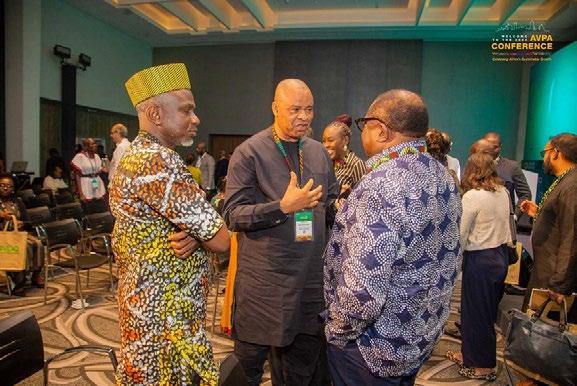



NDPI, PIND, and its partners are shaping a stronger, more resilient Niger Delta.


Since 2010, the Niger Delta Partnership Initiative (NDPI) and its Nigerian implementing partner, the Foundation for Partnership Initiatives in the Niger Delta (PIND), have worked collaboratively to strengthen and stabilize communities across the Niger Delta. Through multi-stakeholder partnerships, they have reduced poverty, empowered coastal communities, created employment opportunities, fostered peace, and catalyzed sustainable development.
Learn more about NDPI and PIND at: NDPI Foundation - www.ndpifoundation.org PIND Foundation – www.pindfoundation.org
NDPI is a U.S.-based 501(c)(3) nonprofit organization that supports and partners with PIND to implement impactful programs in Nigeria. Together, they address complex challenges through economic development and peacebuilding initiatives. Their work goes beyond job creation and conflict resolution—it transforms mindsets and behaviors, community by community, and network by network, laying the groundwork for long-term progress.

Nadeem Anwar, Executive Director
I am immensely proud of the transformative impact NDPI has achieved in partnership with PIND throughout 2024. This year marked a period of meaningful progress, driven by innovative programs, dedicated teams, and strong partnerships committed to peace and prosperity in the Niger Delta.
A major milestone was the establishment of Continuum Capital, our newly registered Special Purpose Vehicle in Nigeria. This platform represents a bold step forward in diversifying our financial portfolio through impact investing. It will enable PIND to attract new investments into the region, further advancing our mission.
Key highlights from 2024 include:
• Market Systems Development (MSD): Over 46,000 farmers and Micro, Small and Medium Enterprises (MSMEs) were equipped with improved skills and knowledge, resulting in US$27.26m in additional income. These efforts have transformed agricultural practices and improved livelihoods across farming communities.
• Youth Employment Pathways (YEP): More than 1,450 youth—including a significant number of women—were trained in market-relevant skills such as digital literacy, enhancing their employability and income potential.
• Access to Energy (A2E): Communities saved an estimated $2.89m in energy costs. Solar-powered refrigeration hubs supported over 500 fisherfolk and MSMEs, enabling them to preserve products, reduce losses, and expand their businesses.
• Peacebuilding: PIND trained 458 new peace actors who actively prevented and resolved conflicts. As a result, over 510,000 people across 66 communities reported improved safety and stability.
As we enter Phase IV, 2025-2029, we remain committed to scaling impactful solutions, strengthening community resilience, and empowering individuals to build a brighter future.
To our partners, donors, and the entire NDPI and PIND teams—thank you. Your unwavering support is helping shape a stronger, more resilient Niger Delta.

Mamadou Beye, Chairman
On behalf of the Board of Directors, I am proud to reflect on NDPI’s continued commitment to peacebuilding and economic development in the Niger Delta. In 2024, we made significant strides in strengthening governance, diversifying funding, and deepening strategic partnerships.
Our robust governance framework ensured effective oversight and responsible resource management. We were pleased to welcome Philippe Oga to the Board. With over 25 years of experience in finance, Philippe brings invaluable expertise that is already enhancing our financial oversight—particularly as we launch Continuum Capital to scale our impact through innovative financing.
Strategic partnerships remain central to our mission. Our collaboration with organizations like the African American Institute (AAI) exemplifies the power of collective action. These alliances amplify our reach and reinforce our shared commitment to sustainable development.
We are also enhancing accountability through improved data collection and reporting systems. These efforts ensure transparency and enable us to communicate program outcomes effectively to donors, partners, and stakeholders.
As we move into Phase IV, 2025-2029, of our strategy, NDPI and PIND will continue to foster inclusive partnerships, influence policy, and strengthen governance frameworks that empower communities to achieve lasting prosperity.
To our partners, donors, and the dedicated PIND team—thank you for your continued support. Together, we are building a future defined by peace, opportunity, and resilience.
Reducing Poverty
Farmers and MSMEs received information on best practices to boost productivity
Reducing Conflict, Fostering Peace and Stability
Farmers and MSMEs (48.4% women) trained in improved practices to enhance income and productivity
Conflicts mitigated by 1,200+ peace actors using PIND and P4P-acquired skills.
Facilitating Alternative Energy Solutions to Coastal Communities Empowering Local Organizations Influencing Government Policies, Programs and Practices
Households gained access to clean energy.
Invested in PINDsupported sectors by economic development actors.
Earned by farmers and MSMEs in additional income by adopting improved practices and technologies.
New peace actors (43% women) trained in peacebuilding and conflict resolution. Quality actions were implemented by peace actors to prevent and manage conflicts.
Saved by communities in energy costs through PIND- supported renewable energy solutions.
Raised by local organizations through PIND’s capacity- building support for community responsiveness services
Businesses benefited from renewable energy solutions.
In government spending in uenced through strategic collaborations and advocacy
New full-time equivalent jobs created in PINDsupported sectors, strengthening local economies.
Stakeholders utilized PIND’s peace data to guide peacebuilding initiatives.
People accessed energy technologies like solar refrigeration hubs and energy cabins. In investments leveraged by PIND in energy solutions, expanding electricity access in underserved communities.
In donor and private sector spending in uenced through strategic collaborations and advocacy

Stakeholder engagement is central to the missions of both PIND and NDPI. NDPI staff actively support PIND in select international stakeholder engagements, contributing to the success and reach of these initiatives. Below are highlights of some key engagements that exemplify these collaborative effort:


In November 2024, the Niger Delta Partnership Initiative (NDPI) and the Foundation for Partnership Initiatives in the Niger Delta (PIND) played a pivotal role at the African Venture Philanthropy Alliance (AVPA) Summit in Nairobi, Kenya. As sponsors and knowledge partners, NDPI and PIND joined a diverse assembly of development practitioners, social investors, and philanthropic leaders from across Africa to explore forward-thinking strategies for sustainable and inclusive development on the continent.
PIND took center stage during a high-level panel session titled “African Non-Profits and Regenerative Partnerships: Building and Maintaining Collaborative Relationships for Sustainable Impact,” held on Tuesday, November 5. This strategic session highlighted innovative approaches to fostering long-term, regenerative collaborations among African non-profits, governments, donors, and the private sector.
PIND is a leader in driving systemic change in the Niger Delta.
Representatives from NDPI and PIND shared valuable insights drawn from PIND’s multi-stakeholder programming in the Niger Delta, showcasing innovations in impact investment, peacebuilding, and inclusive market systems development. Aline Varre, NDPI’s Director of Business Development Services, delivered a compelling presentation on “Leveraging Impact Investment for Sustainable Community Development.” She introduced PIND’s upcoming regenerative impact investment initiative, designed to stimulate growth among small and medium-sized enterprises (SMEs) in sectors such as energy, market systems, and youth employment. Her remarks underscored the critical role of peacebuilding and stakeholder collaboration in achieving resilient community outcomes—an approach that defines PIND’s emerging identity as a regenerative impact investor.
Through its active participation in the AVPA Summit, PIND reinforced its leadership in driving systemic change in the Niger Delta and also reaffirmed its dedication to knowledge exchange and ecosystem development across Africa. This engagement aligns with PIND’s strategic objective of shaping the narrative around regenerative development and mobilizing blended capital to drive enduring socio-economic transformation.

As part of its ongoing commitment to advancing sustainable energy access and investment in the Niger Delta, the NDPI Foundation actively participated in the 2024 Powering Africa Summit held in Washington, D.C. Represented by Aline Varre, Director of Strategy and Business Development, and Maputi Botlhole, Special Projects Coordinator, NDPI contributed to two key sessions: a panel discussion titled “Can Data Transform Financing for a Sustainable Energy Transition?” and the Youth Energy Summit Roundtable.
These sessions convened leaders from across sectors to examine the pivotal role of data in mobilizing capital for clean and decentralized energy systems throughout Africa. PIND’s involvement highlighted its leadership in leveraging evidencebased models and ecosystem-driven strategies to attract private sector investment into inclusive, energy-enabled development initiatives.
During the panel, Aline Varre emphasized the transformative potential of data in shaping investor confidence by aligning project design and implementation with financing criteria. She remarked, “Data is the new infrastructure. If we treat it as such, we can unlock energy financing at scale, aligned with both investor requirements and the realities of marginalized communities.” She also referenced NDPI’s longstanding collaboration with DAI, particularly the 2015 Electricity Value Chain study and subsequent model-sharing workshops, which significantly influenced the strategy of Nigeria’s Rural Electrification Agency and spurred interest among energy developers.
“Data
is the new infrastructure.”
- Aline Varre
PIND’s behind-the-scenes work in mapping energy usage across agro-industrial clusters—such as milling hubs and palm oil processing centers—was presented as a compelling example of how behavioral insights can guide targeted investments. Furthermore, data from mini-grid deployments and environmental-social impact assessments have been instrumental in refining investment strategies, especially for coastal and remote communities that have historically been excluded from electrification efforts.



PIND was represented by its Access to Energy Manager, Mr. Teslim Giwa who leveraged the platform to showcase the importance of collaboration in providing reliable energy solutions to underserved communities, particularly in the Niger Delta region. He showcased PIND’s data-driven model, particularly its recent successful implementation in the United States Agency for International Development (USAID)-led Health Electrification and Telecommunication Alliance (HETA) project, which aimed at enhancing energy access to health facilities, businesses, and households in remote coastal communities in the Niger Delta region through innovative solutions.
Addressing the audience, Mr. Giwa said, “Innovative partnerships that address electricity as a value chain allows for scale and speed of delivery for energy goods and services to last mile communities” He added that PIND’s partnership with Power Africa through the HETA project installed energy cabins to electrify 12 healthcare facilities in Bayelsa, Delta, and Ondo. This project was a great platform to showcase PIND’s Access to Energy (A2E) achievements across its intervention areas.
Innovative partnerships that address electricity as a value chain allows for scale and speed of delivery for energy goods and services to last mile communities.
He spoke alongside other speakers such as Kormelia Shilunga, Deputy Minister of Mines & Energy of Namibia; Alfonso Chikuni,Secretary of Energy, Malawi; Caroline Emombou, CEO All On; and Richard Nelson, Coordinator, PowerAfrica. Overall, the session explored innovative solutions to addressing energy gaps in the continent while identifying opportunities to collaborate to accelerate energy access across Africa, reaching last-mile communities.
- Teslim Giwa
Also, in attendance was PIND’s Director of Strategy and Business Development, Aline Varre, who participated in a session tagged: “The Business and Philanthropy Nexus: Driving Sustainable US Africa Partnerships.
This session focused on the relationship between business and philanthropy and how effective collaboration enhances sustainable development and positive social impact in Africa. Other panelists were Travis Atkins, CEO of USADF; Ndidi Nwuneli, CEO of One Campaign; and Zouera Youssoufou, CEO of Dangote Foundation.


In 2024, PIND exceeded its Phase III fundraising target by securing a $6.249 million grant from the Mastercard Foundation for the Youth Cassava Aggregation Project (YCAP). This multi-year investment will significantly scale PIND’s impact in agriculture and youth empowerment across the Niger Delta. The partnership will expand access to technical and vocational training, improve access to agricultural technologies, and strengthen market linkages for cassava farmers—further reinforcing PIND’s role as a leader in systems- based development programming.
To ensure long-term sustainability and scale, NDPI and PIND took a significant step forward in 2024 by establishing Continuum Capital as a Special Purpose Vehicle (SPV) in Nigeria. This strategic platform is designed to diversify our financial portfolio through innovative impact investing approaches. By leveraging Continuum Capital, PIND will be better positioned to attract new investments into the Niger Delta region, unlocking private sector capital to drive inclusive economic growth, support local enterprises, and expand the reach of our development programs. This marks a bold evolution in our efforts to blend social impact with financial returns, ultimately advancing our mission to create lasting change in the region.

$6.249 million grant
Secured for the Youth Cassava Aggregation Project (YCAP)

NDPI Continues to collaborate with PIND to enhance economic development and peace building in Nigeria’s Niger Delta. In 2024, PIND made significant programmatic achievements in both intervention areas.

Through its peacebuilding efforts, PIND in 2024 impacted an estimated 2,570 beneficiaries, surpassing the annual target by over 100%. Leveraging the Early Warning and Early Response (EWER) system, PIND produced and disseminated 54 peacebuilding data products, including 49 weekly briefs, three quarterly conflict trackers, one policy brief, and one annual conflict report, providing actionable insights to local, national, and international peace actors.
To scale grassroots peacebuilding interventions, PIND awarded grants to nine Community-Based Organizations (CBOs) across the Niger Delta, empowering them to implement tailored peace initiatives. Notably, the Sanab Development Foundation led a successful Violence Against Women and Girls (VAWG) awareness campaign in the region by engaging students, university officials, and traditional leaders to address intimate partner violence risks.
PIND also strengthened its Prevent Councils, expanding into three other Niger States in the Niger Delta to improve early warning systems, foster collaboration with traditional rulers, and promote proactive conflict resolution. Through its Partners for Peace (P4P) network, over 1,200 peace actors successfully resolved conflicts using 139 quality actions. Additionally, over 510,000 people across 66 communities in the Niger Delta reported improved safety and security in their communities.
PIND’s peacebuilding efforts impacted an estimated 2,570 beneficiaries.
PIND’s P4P network helped mitigate recurring clashes between farmers and herders in the rural communities by facilitating multistakeholder engagements that resulted in the establishment of a Conflict Monitoring Group to track and manage disputes. PIND’s peacebuilding initiatives, including cultural and arts-based activities that engaged over 1,600 participants, continues to drive meaningful change, contributing to safer and more resilient communities across the Niger Delta.


Before engaging with PIND, my approach to conflict resolution was largely reactive, addressing disputes only after they had escalated. PIND shifted my perspective, showing me that preventing conflict is far more effective than managing it after the fact. Since 2010, I have been involved in mitigating farmerherder clashes and community disputes, and in 2022, I was appointed Chairman of Non-State Actors in Delta State. With PIND’s continued support, we have successfully mediated land disputes and now utilize the Early Warning Early Response (EWER) system to proactively identify and address tensions. This has helped ensure that peacebuilding remains a central focus in our communities
- Dr Agara

PIND’s MSD program empowered over 101,825 farmers and micro, small and medium enterprises (MSMEs), exceeding the annual target by 20%. Farmers adopted improved agronomic practices, resulting in investments of $13.67m, 152.4% above the target of $8.97m. Adoption of these improved practices have led to significant financial gains, with farmers and MSMEs generating $25m in additional income in the region.
PIND’s MSD program empowered over 101,825 farmers and micro, small and medium enterprises (MSMEs).
The program also facilitated 22,544 full-time equivalent (FTE) jobs, exceeding the target of 13,000 by 173%. In partnership with Newland Pathways Integrated Consult and Marich Agro Allied Services, PIND supported 1,145 micro-businesses in two states, equipping fisherfolk and coastal entrepreneurs with improved skills and technologies. As a result:
• 272 fisherfolk were trained in improved fishing practices, boosting productivity.
• 3.05 million in market linkages was facilitated, connecting fisherfolk to broader financing and trade opportunities.
• 67 improved fishing technologies were adopted in coastal communities, reducing post-harvest losses and enhancing incomes


I was a classroom teacher with no background in cassava farming before my engagement with PIND. Through PIND’s training, I established a four-plot cassava farm and began supporting smallholder farmers with improved cultivation techniques to boost their productivity. In Obi Ayaga, Delta State, the farmers I mentored experienced significant increases in yield and income—progress that earned recognition and praise from community leaders. Inspired by this impact, I remain committed to expanding my efforts, promoting better farming practices, and empowering more communities across the Niger Delta.
– Zekeri

PIND’s Access to Energy (A2E) program delivered transformative clean energy solutions to underserved communities. In 2024, solarpowered refrigeration hubs, each powered by 15kWp solar systems, were deployed in Delta State. These hubs supported over 500 fisherfolk, MSMEs, and households, significantly reducing postharvest losses by up to 40% and improving economic activities. The refrigeration hubs preserved over 1.2 metric tons of fish weekly, improving product quality and increasing market value. The hubs also enhanced healthcare services by providing stable electricity for medical storage and treatments. In collaboration
with community leaders, PIND facilitated 5.8 million in local contributions to support hub maintenance, ensuring sustainability.
PIND’s energy program deepened engagement with Host Community Development Trusts (HCDTs), strengthening partnerships to align energy initiatives with broader development plans. PIND ensured long-term impact and improved energy access for underserved populations by integrating solar solutions into community-driven projects.
Solar-powered refrigeration hubs in Delta State supported over 500 fisherfolk, MSMEs, and households.


For years, many communities in the Niger Delta endured unreliable electricity, relying on expensive diesel generators that frequently broke down. In 2024, PIND introduced a community-managed solar energy project that has since transformed lives. Households now enjoy stable power, children can study at night, and local businesses run more efficiently. Beyond lighting homes, the project has fostered unity and a strong sense of ownership among community members.
– Patrick

In 2024, PIND through its YEP program trained 1,454 youth to gain requisite skills required to start up their businesses or gain employment. 84% of the youth beneficiaries have successfully secured employment or started businesses. 1,223 graduates reported increased earnings after training, demonstrating tangible economic impact.
84% of the youth beneficiaries of PIND’s YEP program have successfully secured employment or started businesses.
The program facilitated 67 million YEP Business Start-up Challenge Fund grants for 114 businesses, including 60 women-owned and five PWD-led enterprises. These businesses spanned key sectors such as agriculture, construction, ICT, and services, enhancing their growth and sustainability.
Additionally, 294 youth were placed in internships and apprenticeships, enabling them to refine their skills and improve employability.




PIND collaborated with arable land committees in the Niger Delta to enhance land access for smallholder farmers and promote inclusive land policies. This was achieved through PIND’s partnership with the Ministry of Agriculture to finalize a land access policy draft for Ondo State., These efforts align with broader initiatives such as FAO’s FOLUR-IP project and the Master Card Foundation’s agricultural interventions.
PIND also tackled the issue of multiple taxation and illegal levies affecting small businesses in the Niger Delta. A landmark report highlighting these challenges was published, followed by a Regional Tax Reform Dialogue involving key stakeholders such as the Tax Justice & Governance Platform, SMEDAN, and the Port Harcourt & Aba Chambers of Commerce. As a result, a Technical Working Group (TWG) was established to advocate for tax policy reforms, aligning with national and regional economic strategies aimed at ensuring a suitable environment for the sustainability of micro, small, and medium Enterprises (MSMEs).
In Q4 2024, PIND strengthened its engagement with youth-focused agencies by participating in the 7th National Council on Youth Development (NCYD). This collaboration led to opportunities for apprenticeship programs, adopting the Youth Employment Pathways” (YEP) model across the region.
Under the Petroleum Industry Act (PIA) Bridges Project, PIND facilitated capacity-building workshops for Host Community Development Trusts (HCDTs) to improve governance, project sustainability, conflict resolution, and data management practices. The engagement also involved pitching energy solutions and development interventions to ensure sustainable community growth. PIND secured approval to transition the Bridges Project into a state-level MSP model with enhanced CSO participation for long-term sustainability. Through these targeted efforts, PIND continues to influence policies, strengthen partnerships, and promote inclusive development to drive positive change in the Niger Delta.
The Board of Trustees are responsible for the preparation and fair presentation of these financial statements. This responsibility includes designing, implementing, and maintaining internal controls relevant to the preparation and fair presentation of the financial statements that are free from material misstatements, selecting and applying appropriate accounting policies, and making accounting estimates that are reasonable in the circumstances.
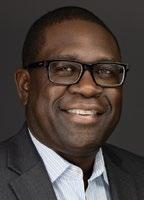
Mamadou Beye Chairperson of the Board of Directors; General Manager, Chevron

Pauline Baker President Emeritus, Fund for Peace

Eyitemi Ned Mojuetan Vice President, Transactions and Legal, Chevron
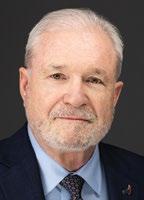
Dr. Mima Nedelcovych Chairman, AfricaGlobal Schaffer

Jane Nelson Corporate Responsibility Initiative, Kennedy School of Government, Harvard University

Nadeem Anwar Executive Director, Secretary of the Board

Melissa Abel Treasurer of the Board of Directors; Corporate Affairs Advisor, Chevron

Aline Varre Director of Corporate Governance & Sustainability

Ochuko Piserchia Team Lead, Communications, Operations, and Policy

Maputi Botlhole Team LeadPlanning, Engagements, Grants Management

Tam Nguyen Global Head of External Affairs and Sustainability, Bechtel.org

Laurie Regelbrugge Corporate Social Responsibility, Community Engagement Specialist, Education Consultant

Noon Elhindi, Corporate Governance & Finance NDPI

NDPI and its partners are building a future defined by peace, opportunity, and resilience.
